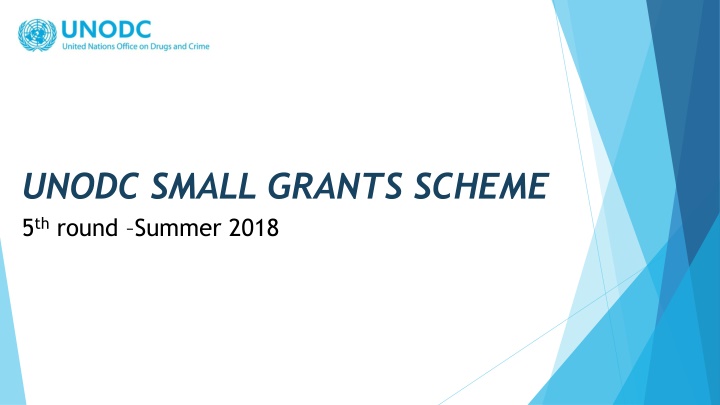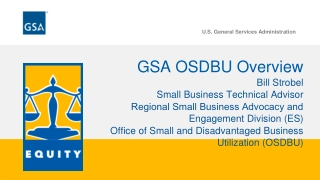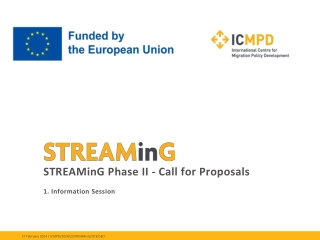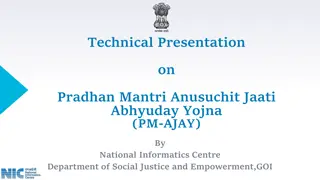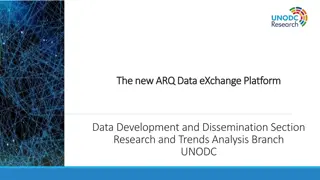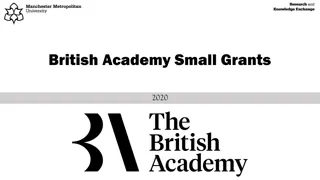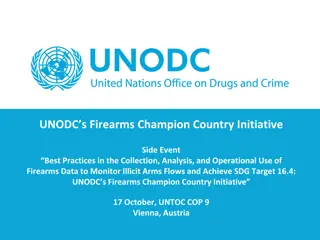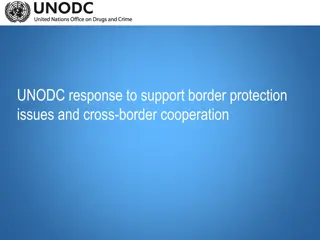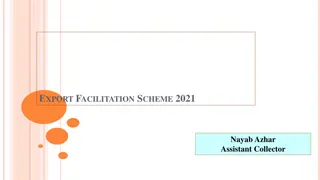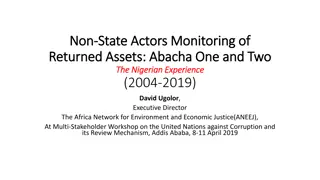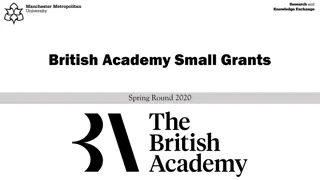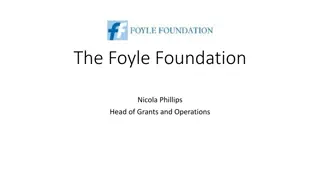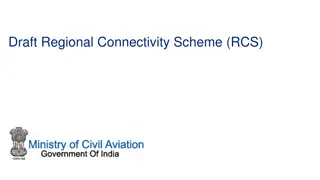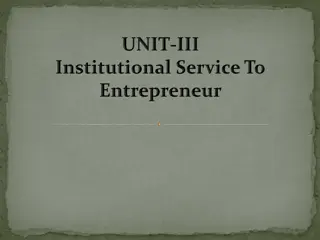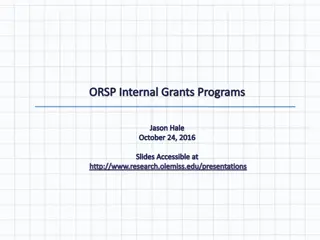UNODC Small Grants Scheme - Empowering Civil Society Organizations
This content highlights the UNODC Small Grants Scheme aiming to assist Civil Society Organizations in engaging with the private sector to combat corruption. It discusses the criteria for CSO selection, the importance of partnering with the private sector, and encouraging SMEs to work on UNCAC. The achievements of the grant scheme are also outlined, showcasing empowerment of CSOs and marginalized groups in combating corruption.
Download Presentation

Please find below an Image/Link to download the presentation.
The content on the website is provided AS IS for your information and personal use only. It may not be sold, licensed, or shared on other websites without obtaining consent from the author.If you encounter any issues during the download, it is possible that the publisher has removed the file from their server.
You are allowed to download the files provided on this website for personal or commercial use, subject to the condition that they are used lawfully. All files are the property of their respective owners.
The content on the website is provided AS IS for your information and personal use only. It may not be sold, licensed, or shared on other websites without obtaining consent from the author.
E N D
Presentation Transcript
UNODC SMALL GRANTS SCHEME 5th round Summer 2018
UNODC Small Grants Scheme Small Grants aim at assisting Civil Society Organizations in their engagement with the private sector in anti- corruption Raise awareness among businesses about the UNCAC and its application at the local level
Criterias for CSO selection CSOs based in Africa Experience in monitoring activities, conducting legal analysis, drafting reports, and working with the private sector Advocacy experience in sectorial industries (e.g. extractive industries, construction industry, financial sector, etc.) Organization s potential to make useful contributions to the review process and country/regional follow-up activities
Why partner with the private sector ? Private sector accounts for about 60% of the GDP globally About 10% of private sector companies are MNCs and their sales are worth US $31 trillion 90% are SMEs Private sector is increasingly providing services that were previously provided by the State Actors of private sector are not only victims of corruption but part of the solution
Why CSOs should encourage SMEs to work on UNCAC? Existence of a number of global initiatives and compliance programmes that partner with MNCs (e.g. UN Global Compact, EITI, GSCP) A need to engage with SMEs at local level as they represent 90% of gobal economy and are more difficult to reach CSOs are part of the local community and potential clients of SMEs CSOs can play an important role in engaging SMEs on the implementation and monitoring of UNCAC
Grant Scheme Achievements Empower CSOs to engage SMEs in the implementation of UNCAC Involved marginalized groups such as women, disabled and indigenous people Created local mechanisms such as action plans and business networks to combat corruption
Small Grant Recipients 26 CSOs from 16 countries supported in the first 4 rounds since 2012 In the last round (15 July 15 November 2015) 9 CSOs from 8 countries have been selected: Benin - Cameroon Kenya Madagascar Rwanda Senegal Togo Uganda
Success Story: Christian Partners Development Agency (CPDA) Kenya Objective: Enhance social accountability and empower small and medium sized enterprises to combat corruption through intensive workshops and self- help groups at grassroots level. Outcome: Practical instrument in the form of the proposed Vihiga County Anti-Corruption Policy, to be led by CPDA, as an instrument to check and combat corruption in Vihiga and therefore offer a best practice to other countries in the region.
Success Story: Transparency International-Madagascar (TI-IM) Objective: engage the private sector in the implementation of the UNCAC. organize sensitization workshop for 500 SMEs create a platform for dialogue between SMEs and public decision- makers produce an internet website with a monthly newsletter, organize public events and specific training for SMEs willing to learn about the tools to fight corruption, including a code of conduct. Outcome: Created a platform for informal dialogue between SMEs and TI- Madagascar
Next Round of Small Grants In the summer 2018 Six Grants of USD 5000 will be distributed Send you applications to: unodc-ngounit@un.org
How to contact us: Civil Society Team unodc-ngounit@un.org +43 1 26060-5582 _______________________________________ Thank you for your attention!
